The McFaddin Family
As ranchers and farmers at the turn of the 20th century, the McFaddins enjoyed prosperity from the strong Beaumont economy – even before the discovery of oil. Following the discovery of oil at Spindletop, they were thrilled to move into the “palatial home” (as described in the local society column) located at 1906 McFaddin Avenue, an area transformed from rural countryside to a neighborhood of large expensive homes just west of downtown Beaumont.
William Perry McFaddin & Ida Caldwell McFaddin

William Perry Herring (W.P.H.) McFaddin was born in Beaumont in 1856. Although his father William lacked a formal education, he saw to it that his children received as much schooling as possible. As a boy, W.P.H. was instructed by teachers who lived in the McFaddin home, and later he attended the Texas Military Institute in Austin and Jones Commercial College in St. Louis before coming back to Jefferson County to go into business with his father.
Over the years, W.P.H. and his father, William, expanded their cattle business and diversified McFaddin family interests to include rice farming, milling, meat packing, fur trapping, oil, and commercial real estate. W.P.H. had an impressive work ethic. He could work all day on his ranch, dance into the wee hours of the night and be up before sunrise to do it all over again. W.P.H. had a lifelong passion for land and spent a lifetime expanding his territory. It was said he did not want much land – only what was his and what was next to it.
More than anything else, W.P.H. was considered an astute businessman who generously provided for his family and adeptly steered his business interests through good times and bad. An energetic man, W.P.H. remained active into his old age, dividing his time between his office in downtown Beaumont and his ranches. He was a cattleman born and bred and never lost his love for his ranchland, riding his horse all day with the ranch hands even into old age.
In 1894 at the age of 38, W.P.H. married Ida Caldwell, daughter of a prominent family in Huntington, West Virginia.
Elegant and sophisticated, Ida Caldwell McFaddin enjoyed surrounding herself with the finer things from her fashionable clothing to her beautifully decorated home. Educated at Mary Baldwin Seminary in Virginia, Ida quickly became a social and civic leader in the Beaumont community.
Ida had many talents, especially creativity, organizational skills, and the ability to motivate people. She had a gracious manner and was well loved by employees and associates alike. After the deaths of her brothers, Ida served capably as president of her family’s company in Huntington. She also had an interest in WPH’s business affairs and offered him advice and encouragement.
As befitted a fine lady of means in those times, Ida lent her talents to numerous volunteer activities. She was active in the Episcopal Church where she served as a guild member, Sunday school teacher and sang in the choir. She also served on the board of the Beaumont Children’s home and was very active in the Daughters of the American Revolution. During both world wars, Ida headed up the Red Cross volunteer effort, supervising the making of bandages, blankets, and other items.
Mamie McFaddin Ward and Carroll Ward
Mamie and her two brothers enjoyed a happy childhood. Ida hosted birthday and holiday parties on the lawn for the children, dances on the front porch, and house parties where college friends were allowed to stay for extended periods. Education was of primary importance to W.P.H. and Ida. The McFaddin children attended local schools then the boys went on to college while Mamie attended Gunston Hall, a finishing school for young ladies, in Washington, D.C.
Mamie began dating Carroll Ward in 1913. The son of a local businessman, he played football at both Baylor University in 1907, then at Texas A&M in 1909-1910. Carroll was considered one of the school’s all-time football greats.. During World War I Carroll joined the Army where he trained as a pilot. It was rumored that the McFaddins were concerned about Carroll’s wild reputation, initially not fully supporting their daughter’s relationship. However, two months after Carroll’s discharge from the army, the couple married in the home’s pink parlor on May 29,1919. They lived in the house, with her parents, for the entirety of their marriage.
After the marriage, Mamie assumed many of the household management duties, relinquished by her mother. She oversaw the daily cleaning, meal preparation, seasonal cleaning rituals, and household repairs. She took her duties seriously, always prioritizing the care and keeping of the large home over everything except family. Carroll worked at his family’s ranch and rice farming business, for his family’s ice company, and at one time owned Beaumont’s ice skating rink and sponsored the Texas Rangers hockey team.
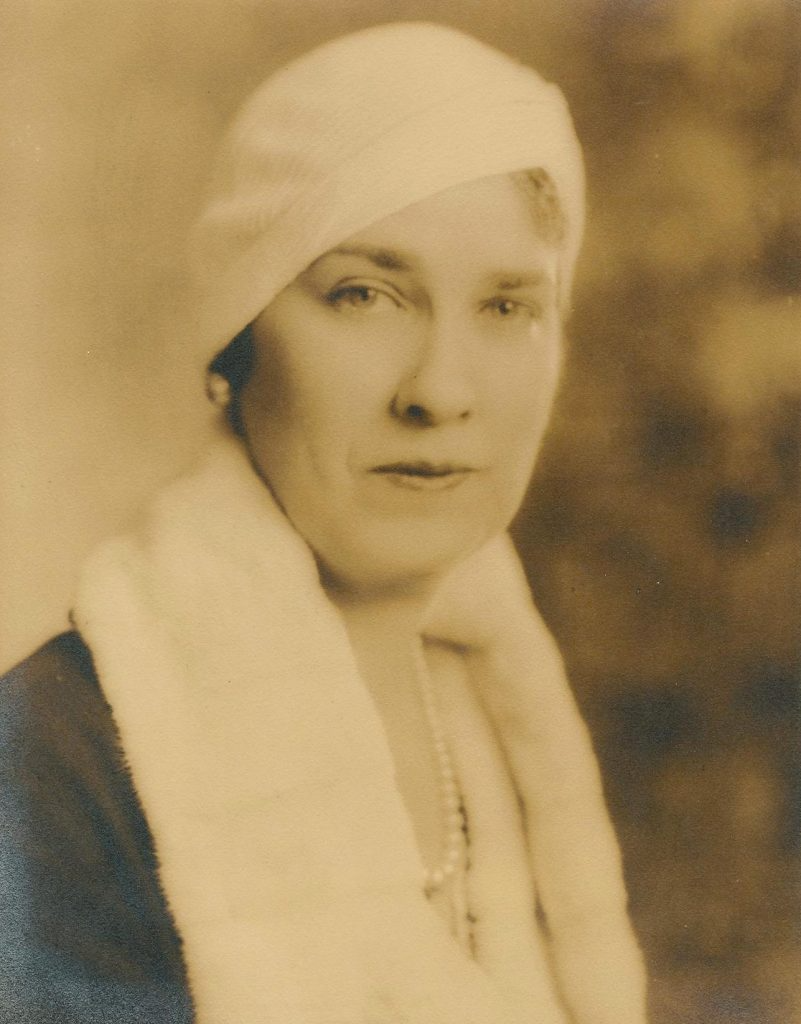
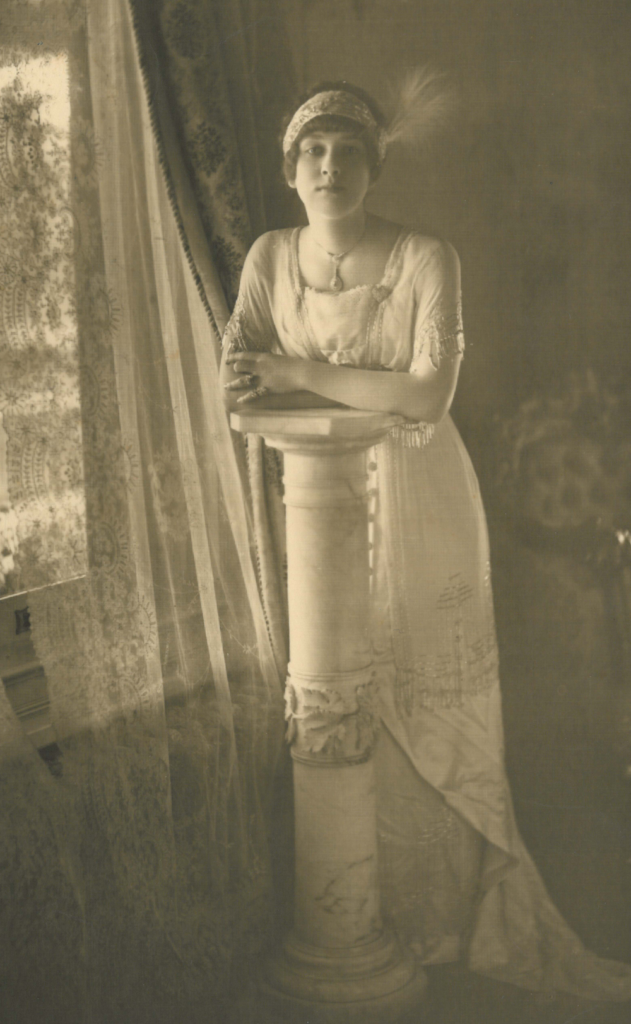
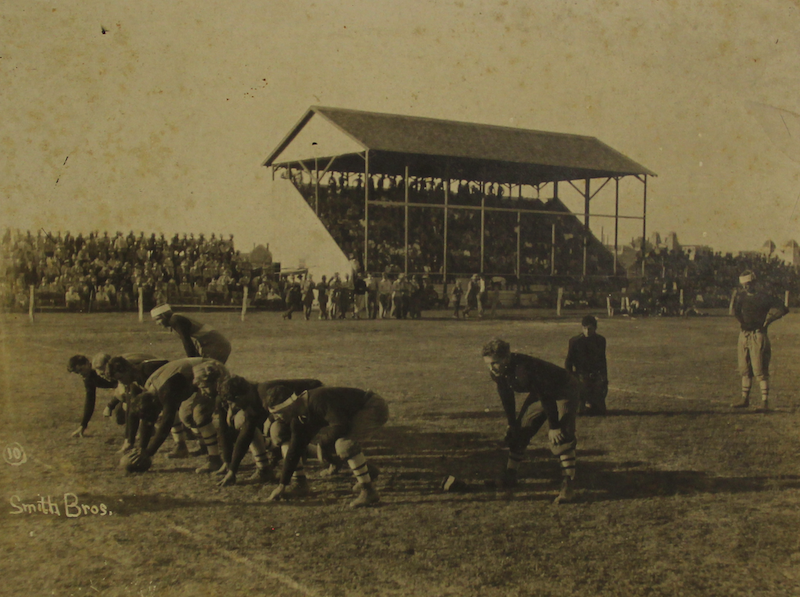
Throughout life, Mamie served her community alongside her mother, in various capacities. She was a forty year board member for the Beaumont Children’s Home, a founding donor of both the Beaumont Art Museum and Beaumont Heritage Society. Mamie and her mother were both active members in the Daughters of the American Revolution, Magnolia Garden Club, and the National Society of Colonial Dames.
Later in life Mamie made generous donations to causes near to her heart including St. Mark’s Episcopal Church, All Saints’ Episcopal School, Lamar University, St. Elizabeth Hospital, and the Texas Heart Institute of Houston. Prior to her death in 1982, she created the Mamie McFaddin-Ward Heritage Foundation which continues to fund endeavors related to education, health, historic preservation, and the arts throughout Southeast Texas. The foundation’s primary responsibility is the ongoing care of the McFaddin-Ward House and generously funds the museum’s community programming.
William Perry McFaddin, Jr. (Perry)
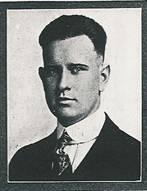
Growing up, Perry, Jr. enjoyed his time at the ranch with his father, outdoor activities, and Boy Scouting. As young children, Perry, Jr. and his brother, Caldwell, accompanied their father to the family’s ranch to learn the basics of ranch management, sometimes leaving their home as early as 5:00 in the morning, with pockets stuffed full of cook Louis Lemon’s tea cakes to get them through the day. In the summer months Perry attended a boys’ summer camp called Austin Academy “Camping School” in Marble Falls, Texas. While there he enjoyed camping, swimming, and tennis. The McFaddin boys created a tennis court on the lawn and often played games in the Carriage House’s gymnasium. Perry was a member of the first Boy Scout troop in Beaumont. Troop 1 was organized on September 16, 1911. The troop did not wear uniforms until the following October when they attended the Southeast Texas Fair. Perry participated in troop hiking trips and camp outs.
The McFaddins took their children’s education seriously. The McFaddin children attended Miss Bell Austin’s Institute, a private school for youngsters. Perry attended from 1902-1910. He then went on to attend Beaumont High School from 1910-1913. After graduation from high school, Perry moved to Houston to attend what is now Rice University from 1913-1917, earning a Bachelor of Arts degree. He performed well in history, physics, and economics.
The McFaddins were not exempt from the goings on of the world around them. World War I touched their lives, as it did so many others with young men in the household. Perry was drafted into the United States Navy in 1918. He left for California, by train, on August 2nd destined for basic training at Goat Island near San Francisco. He wrote to his mother of his homesickness during the war and how he missed his family, stating “What a pleasure it would be to be on horseback again and have the boss [W.P.H.] yell about a mile away. I sure miss his gentle voice…I think Papa has missed his calling he should have been a naval officer.” Perry was discharged on December 19,1918 and back home in Beaumont, by train, on Christmas day. After his wartime service, Perry returned home to work with his father on the ranch.
Perry courted Amizetta Northcott White from Huntington, West Virginia to the dismay of his family. Amizetta was a divorcee with a young daughter. The couple courted in secret but eventually married in 1926. They had two children William Perry Herring McFaddin, III and G.A. Northcutt (Gus) Mcfaddin. They also raised Amizetta’s daughter, also named Mamie.
Perry never lived far from his family, having built a house just a few blocks away in 1928. He was a celebrated businessman and philanthropist, supporting multiple organizations both in Jefferson and Fulton Counties where he owned property.
William Perry McFaddin, Jr. passed away on January 26, 1973 and is buried in the family plot in Magnolia Cemetery.
James Lewis Caldwell McFaddin (Caldwell)
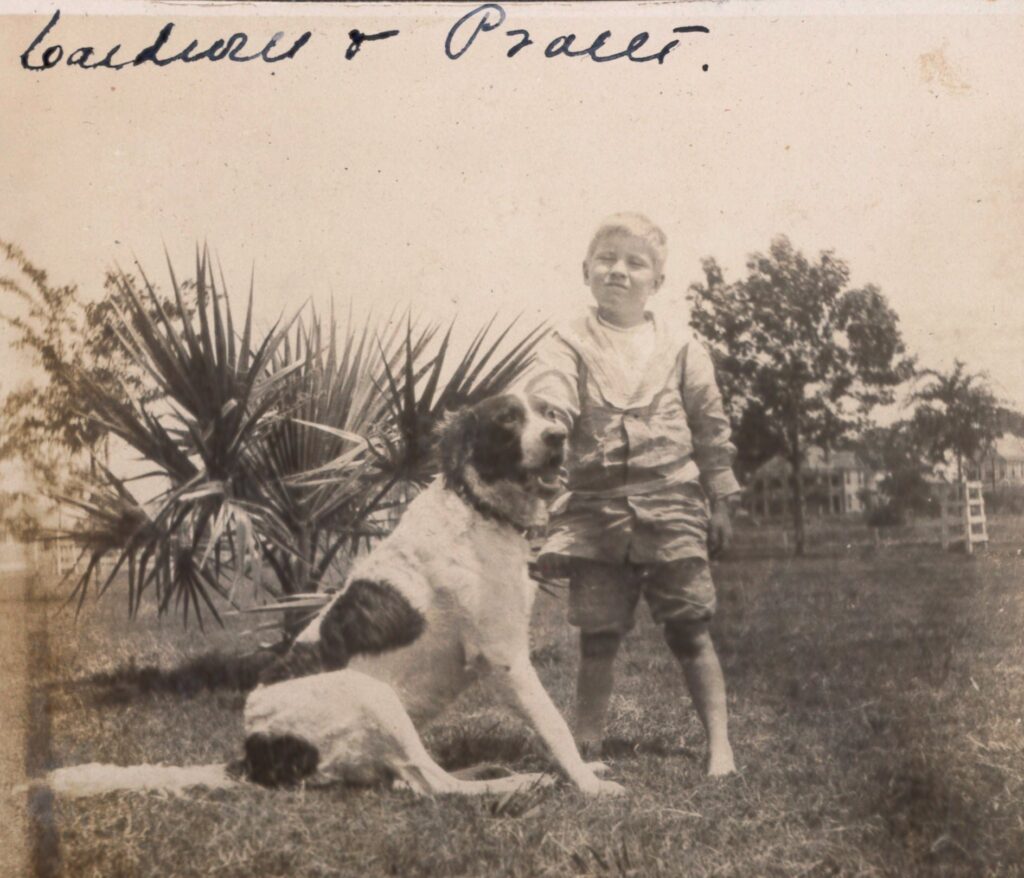
Caldwell was only five years old when the family took up residence in their new home on McFaddin Avenue. He was a serious student and considered bookish, enjoyed music, but also loved sports and outdoor play with his siblings. He took music lessons and practiced on the family’s baby grand piano located in the music room. After a piano recital in 1910, Caldwell’s great-grandmother Eliza Smith, recalled that “he was so much enthused over his playing that he forgot where he was…and was keeping time with this head. When he quit the whole house came down with one big applause.” In addition to playing piano,Caldwell often played tennis and golf with his brother, and enjoyed duck hunting.
Like his siblings, Caldwell obtained an education from local Beaumont learning institutions. His education journey started at Miss Cahn’s School, a nursery school program. Then he transitioned to Miss Austin’s School for his elementary level education. Caldwell’s hard work and dedication to study resulted in recognition as the Valedictorian for his graduating class from Beaumont High School. He went on to attend Rice University and Harvard Law School, graduating in 1924. Perry, the eldest of the McFaddin boys, joked that Caldwell entered law because he decided ranching was not for him after falling from a donkey on his head as a young child. Caldwell often joked that his father needed an attorney in the family to manage the business side of things. Caldwell went on to open his own law firm, teach law at East Texas School of Law, and manage various holdings related to the McFaddin business enterprises.
Caldwell married Rosine Blount, from Nacogodches, Texas in 1925. Like his brother, he built a home in the Old Town neighborhood to stay close to the family on McFaddin Avenue. Caldwell and Rosine raised four children: Rosine, James Lewis Caldwell McFaddin, Jr., Ida, and Eugene
Civic engagement and service was important to the McFaddin family, a duty taken seriously by Ida McFaddin then passed to her children. Caldwell continued the tradition of philanthropic giving and service by giving his time to multiple boards in Southeast Texas for organizations related to children, the church, and community uplift. While cruising the Neches River in the late 1940s with friends, the group decided Beaumont needed a spring festival to celebrate the natural resources of the area and promote pride of place. The group organized the Neches River Festival, first debuting in 1949.
James Lewis Caldwell McFaddin led a life of service to both his family and community. He passed away on January 7, 1984.
The Staff
Cecelia Smith (b. 1900 – d. 1989)
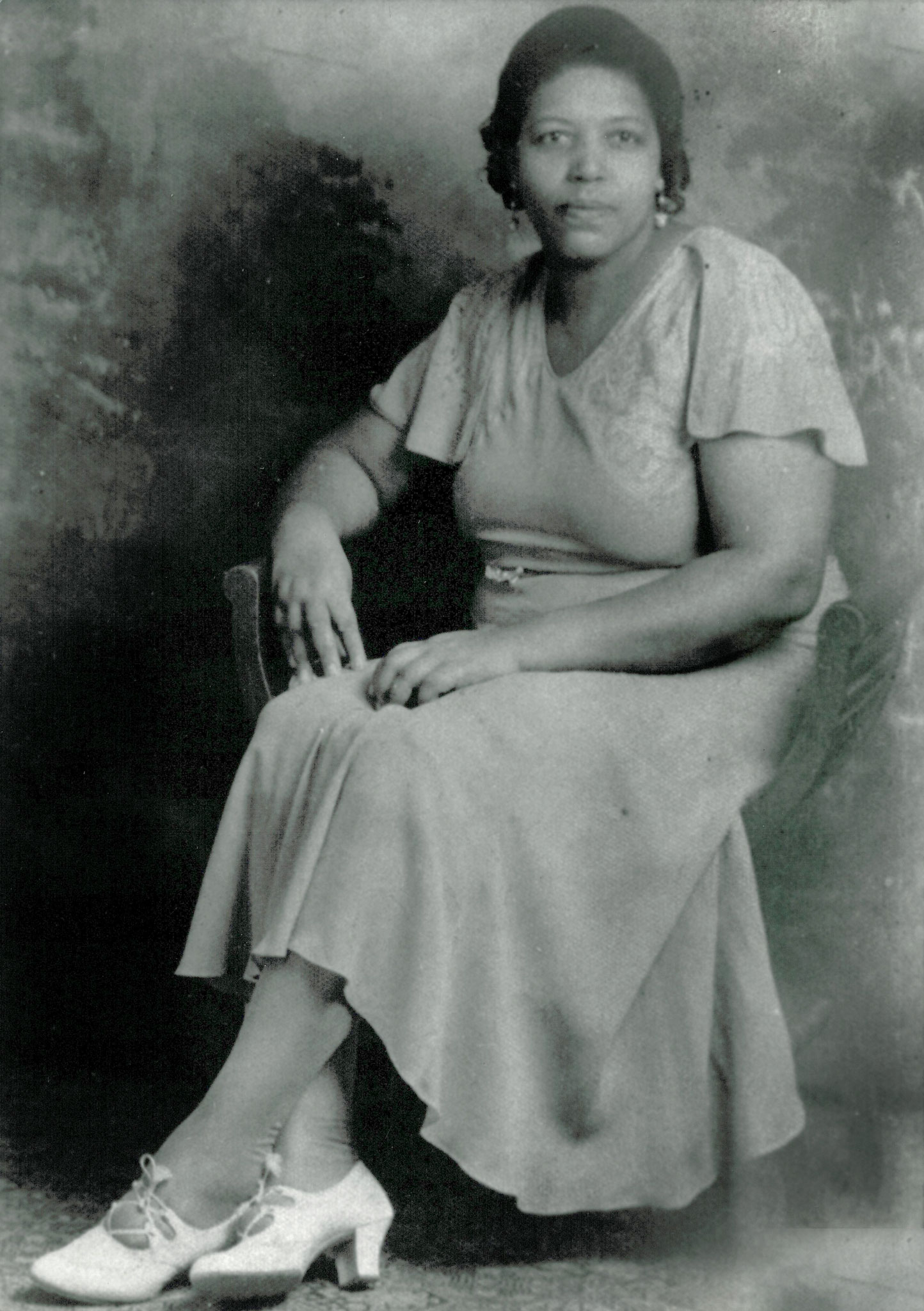
Cecelia Smith, a longtime employee of the McFaddin family, was born in 1900 in Carencro, Louisiana, a small town located near Lafayette.
She came to Beaumont around 1906 with her mother, Brunie Thibodeaux Smith, who went to work for the McFaddin family. As a child, Cecelia helped her mother with the washing and ironing, and when she was older, Ida McFaddin paid the tuition for Cecelia and her sister, Hilda, to attend Holy Rosary School in Galveston.
After she finished her schooling, Cecelia worked at the McFaddin house until she moved to Galveston, ultimately returning in 1940 to work for the McFaddins as a maid. She lived in an apartment on the east side of the Carriage House, but in later life when Mamie was alone in her home after the deaths of Ida McFaddin in 1950 and Carroll Ward in 1961, Cecelia moved into the North Bedroom of the house to keep Mamie company while still maintaining her rooms in the Carriage House to go to when she wished.
In 1975, Mamie established a trust for her devoted maid to provide financial care later in life. When Mamie passed away on October 24, 1982, Cecelia stayed on in the Carriage House until her own health prevented her from living alone. She died November 2, 1989, and is buried at Live Oak Cemetery in Beaumont.
Cecelia’s memories, preserved in oral interviews, were invaluable for documenting life at the McFaddin-Ward House and Carriage House and the greater Beaumont community.
Louis Lemon (b. 1876 – d. 1952)
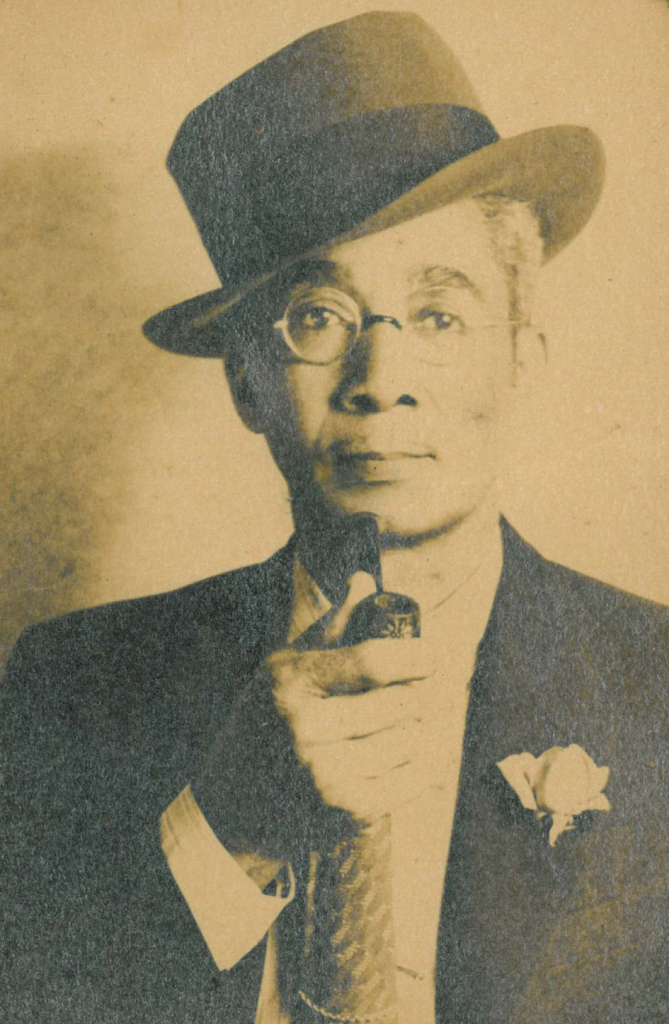
Originally from Opelousas, Louisiana, Louis was first hired to be the cook at the McFaddin Family ranch around 1915 but moved to the house in the early 1920s. He was well-known for his biscuits and tea cakes, keeping them stored in a cookie jar by the kitchen window. W.P.H. McFaddin was known to stash the famous treats in his pockets to enjoy later at the ranch, and the grandchildren recalled how they would sneak into the kitchen for a tea cake when Louis wasn’t looking.
An exceptionally talented untrained chef said to have all his recipes stored in his head, Louis prepared all meals, including those for the many social gatherings that Ida and Mamie hosted. He was known for being a dapper dresser and for possessing a bit of a temper. Not fond of intruders in his kitchen, Louis would sometimes throw red peppers into the wood stove burners, creating unpleasant fumes to keep people away.
Louis worked for the McFaddins for 37 years, remaining in the family’s employ until his death in 1952. Mamie McFaddin Ward and her husband Carroll, along with Mamie’s brother Caldwell McFaddin, attended Louis’ funeral in his Louisiana hometown, where Caldwell gave the eulogy.
During his years at the McFaddin home, Louis lived in a modest, comfortable apartment on the west side of the Carriage House behind the family home. Louis’ apartment is a featured stop during admission-free tours of the historic McFaddin-Ward House Museum.
Tom (b. 1886 – d. 1947) and Albertine (b. 1888 – d. 1994) Parker
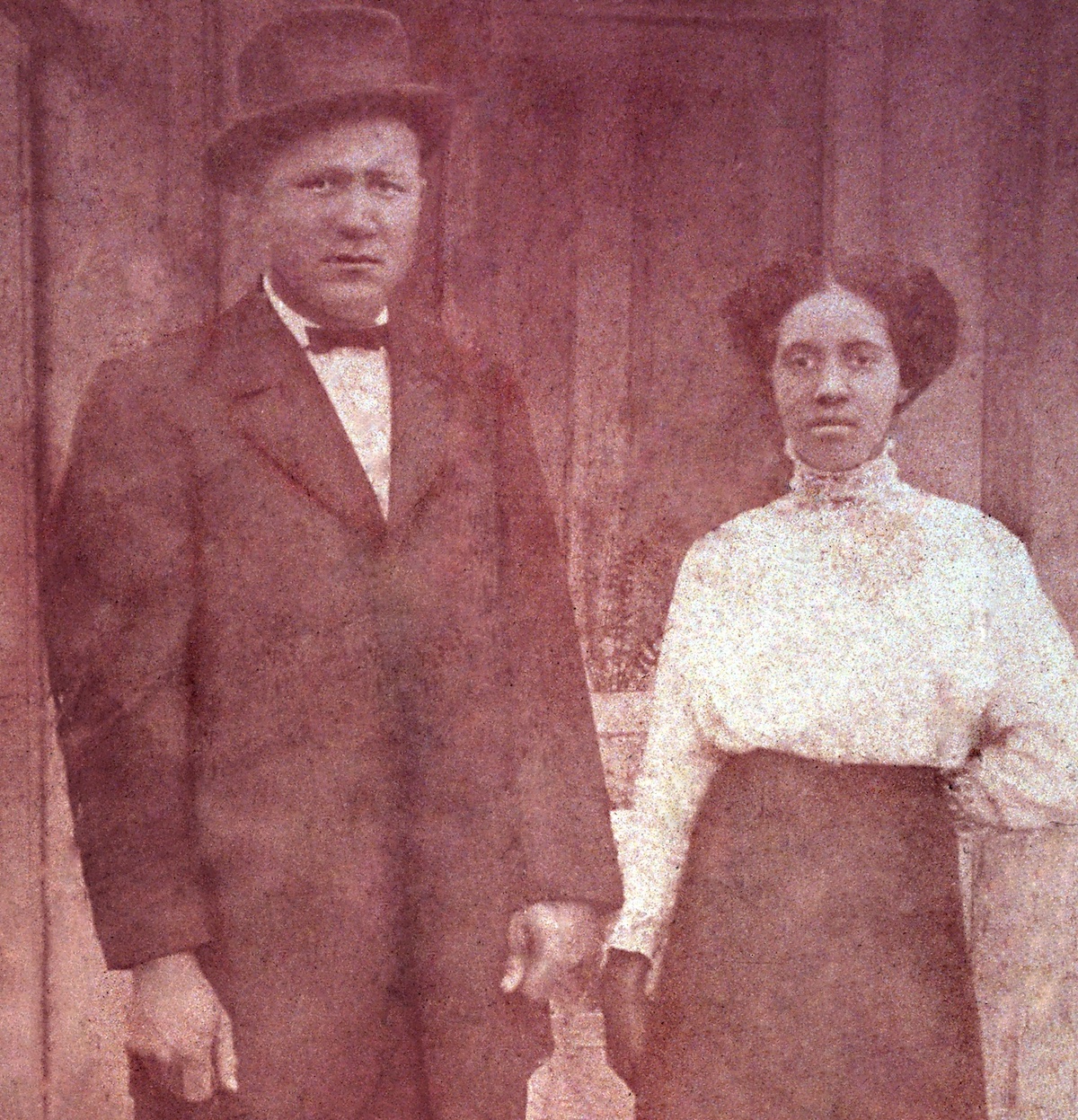
Tom Parker, born in 1886 in Crowley, Louisiana, worked as W.P.H.’s chauffeur from 1910 until W.P.H.’s death in 1935. Because W.P.H. traveled extensively with little advance notice, yet never learned to drive, Tom became more than just a chauffeur to him – the two became friends. Tom drove W.P.H. not only around his vast Jefferson County holdings, but also to his Knox County ranch in north Texas, to cattle shows in Fort Worth, or wherever W.P.H. needed to go. Tom helped care for W.P.H. during his last illness, even sleeping at the foot of the bed. The family reported that W.P.H.’s last words were calling out to Tom.
Albertine Herbert Parker was born in 1888 in St. Martinville, Louisiana and moved to Beaumont in 1908. She married Tom in 1912, and, according to her oral history available in the museum’s archives, she and Tom, Jr. stayed in Tom’s Carriage House quarters during Tom’s absences while chauffeuring W.P.H. Tom Jr. was a playmate of Ida’s nephews who often visited from West Virginia. Albertine remembered Ida as being very gracious and always encouraging of the household employees’ efforts. Albertine died August 27, 1994 at the age of 104.
Buck Sams (b. unknown – 1961)
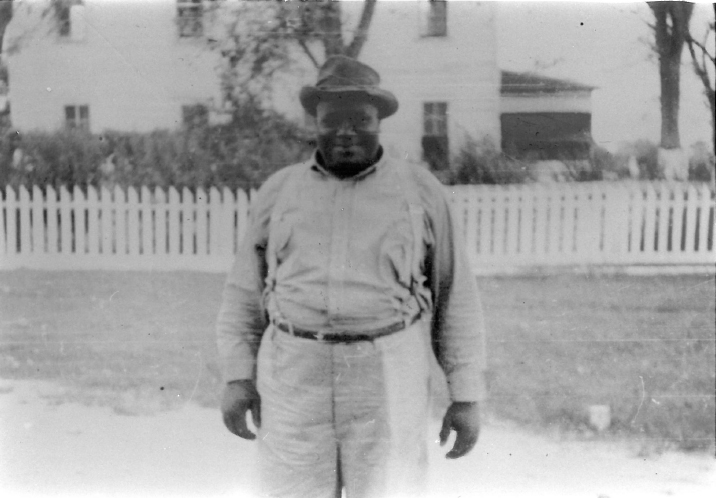
Originally from Louisiana, Buck Sams came to work for the McFaddin family as the farm foreman in 1910 and remained in the family’s employ until his death in 1961.
Early each morning, he would come into town, bringing milk and produce to the McFaddin house and later to the homes of Perry Jr. and Caldwell McFaddin.
Buck lived on the McFaddin farm in a two-story house that had once housed workers for the McFaddin-Weiss-Kyle Irrigation Company. He took care of a large garden and assorted livestock—pigs, cows, chickens and even bees.
The farm furnished a variety of food to the family – milk (sometimes butter), fruit (lemons, grapefruit, satsumas), sugar cane, vegetables, honey, chickens and homemade sausage, for which Buck was especially noted. He was also noted for the size of his vegetables.
Buck couldn’t read or write, so he carried a rubber stamp with his name on it. When he made purchases for the farm, he simply stated his name on the invoice, and the stamp was honored as his legitimate signature.
Even after his formal retirement, Buck remained on the farm to supervise activities. When he died in 1961, his obituary noted, “He was a very devoted foreman who was loved by all the men.”
